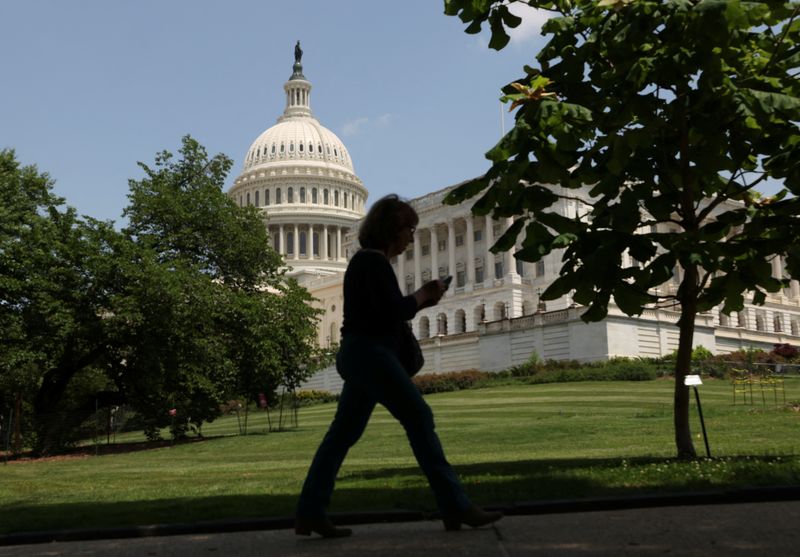Republicans Divided on US Credit Downgrade Amid Tax Bill Stalemate
Washington, May 18, 2025 – Moody’s downgrade of the U.S. sovereign credit rating from AAA to Aa1 has sparked a rift among congressional Republicans, with reactions ranging from dismissal to alarm as they grapple with President Donald Trump’s stalled tax and budget legislation. The downgrade, announced on May 16, 2025, came hours after five House Republicans, led by fiscal hardliners, blocked the progress of a sweeping tax bill over concerns it would exacerbate the federal deficit, highlighting deep divisions within the party.
The legislation, dubbed Trump’s “big, beautiful bill,” aims to extend the 2017 Tax Cuts and Jobs Act, introduce new tax breaks for tips, overtime, and seniors, and fund priorities like border security, while raising the debt ceiling by $4 trillion. However, the Congressional Budget Office estimates it could add $3.72 trillion to the $36.2 trillion national debt over a decade, a concern echoed by Moody’s projection of the debt-to-GDP ratio rising from 98% in 2024 to 134% by 2035.
Fiscal conservatives, like Representative Andy Harris of the House Freedom Caucus, view the downgrade as a “signal that we can wait no longer to address the debt crisis,” conditioning their support on deeper spending cuts, particularly to Medicaid and SNAP. Representative Chip Roy (R-TX) emphasized the need for “serious, responsible budgeting,” advocating for stricter Medicaid work requirements to curb costs. Conversely, moderates like Representative Mike Lawler (R-NY) oppose cuts to social programs and push for higher state and local tax (SALT) deductions, critical for constituents in high-tax states.
Some Republicans, including Representative Jimmy Patronis (R-FL), dismissed the downgrade as “nonsense,” accusing Moody’s of seeking media attention, a sentiment echoing criticism of Fitch’s 2023 downgrade. Others, like Representative Jason Smith (R-MO), touted the bill’s $1.6 trillion in savings, arguing it counters fiscal concerns.
House Speaker Mike Johnson, navigating a slim 220-213 majority, faces pressure to unify the party before the mid-July debt ceiling deadline, as warned by Treasury Secretary Scott Bessent. The bill’s failure to advance in the House Budget Committee on May 16 marks a rare setback for Trump, who urged party unity on social media. With intra-party tensions and Democratic opposition labeling the bill a “tax cut for billionaires,” the path forward remains uncertain.
